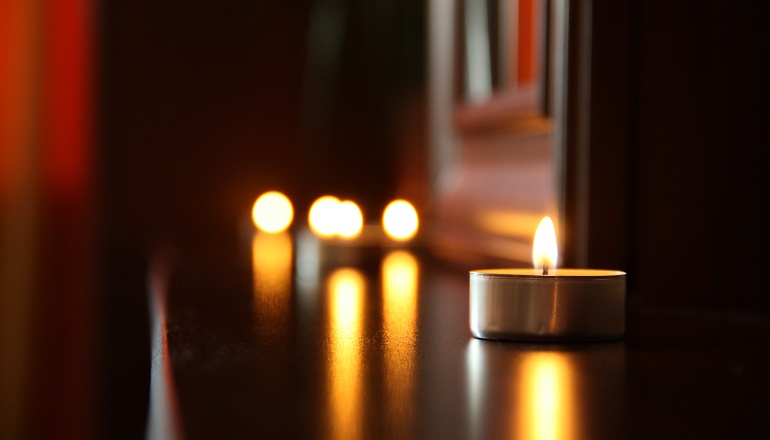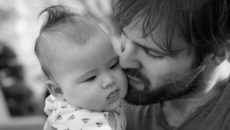Who: Cathy Chagnon, Wallingford, CT
What: Helping families get started in adoption
When my husband and I began the process to adopt our daughter, Samantha, four years ago, we had no idea how to begin. Last year I founded an adoption support group, and from the first meeting, it was clear that we all wanted to spread the word in our community about adoption. We decided to hold an expo at a local theater so that prospective parents could talk with agencies and parents about the adoption process. We called it Options for Adoption. The turnout was awesome. I can’t imagine a better advertisement for adoption than all the beautiful children from our group running around. Those who attended left with huge bags of information, saying, “I can’t believe you did this for us!”
Recently I was asked to think about a moment when I felt total and complete love. The first time, of course, was when I met my daughter. The second was our adoption expo.
Who: Aubrey Reese, Scarsdale, NY
What: Founded an adoptive fathers support group
When my wife, Sonia, and I decided to adopt nine years ago, we selected Spence-Chapin in New York City. Their warmth and sensitivity were such a blessing to us that we wanted to do something to thank them. We began by helping with fundraising efforts for the African-American Parents Advisory Committee, whose Adoptionship Fund supports African-American parents who need some help with the fees to adopt. We’ve raised a sizable amount of money with our annual events, ranging from auctions to this year’s benefit performance of a Brazilian dance group.
In 1999, several of the fathers on the Committee got to talking about the fact that they wished they’d been more involved in the adoption process. Out of this conversation grew the Fathers Mentors Group. We meet regularly—fathers as well as those thinking about adopting—and discuss everything from changing diapers to the larger issues involved in fathering and adoption. When you wake up every morning and hear your child say, I love you, it’s hard to imagine not wanting to give something back.
Who: Gene Wyka, Port Washington, WI
What: Started a foundation to help families who cant afford to adopt
The road to adopting our oldest son Joseph was long and difficult. When he was home, we were walking on clouds. But when we came down to earth, we thought, “What if we hadn’t had the financial resources to complete the adoption?” During the adoption process, we met many people who were struggling to come up with the money for adoption fees. They’d borrowed from relatives and friends, mortgaged their homes, gone into debt, and still come up short. We formed a small family foundation to grant such parents the funds they need—to give them that last push over the financial barrier. Today, the Gift of Adoption Fund is a national charity with chapters in Florida, Wisconsin, and Illinois—and growing! We’ve given out about 100 grants totaling about $400,000 to families adopting both in the US and abroad. Boy, have we learned a lot.
Who: The Burns Family, Kent, OH
What: Helping Orphanages in El Salvador
My husband and I were in the Peace Corps; volunteering has always been part of our life together. Along with our two sons by birth and two daughters adopted in El Salvador, we’ve been involved for years with Concern for Children, as a way of helping children and allowing our daughters to learn more about their heritage.
Our family’s been to El Salvador three times, and we’re planning a fourth trip next summer. Our first trip began as a homeland tour with about 45 families. We spent one day visiting orphanages, delivering donations. It was very emotional for the adoptees; they felt very connected with the children in the orphanages. Several of them said, “That was me. That was my life before I was adopted.” Since then we’ve painted orphanages, installed playground equipment, and brought in doctors to provide care and screen candidates to receive treatment in the U.S. My younger daughter is studying to be a nurse so she can return to El Salvador to work. It’s given all of us a good perspective on what’s really important.
Who: The Kaplan Family, Redmond, WA
How: First a wheelchair, now a lifetime commitment
My son, Yu Xin, whom I adopted from China at age five, was the first of his orphanage group to be adopted. He carried tremendous survivor guilt, especially when he remembered a friend who couldn’t walk and was carried around by the other boys in the orphanage. Yu Xin and his brother, Jaron, then ages six and seven, decided to raise money to buy him a wheelchair. Making and selling candles to neighbors and kids at their school, they managed to raise the $1000 needed.
Soon after, when the boys told a family friend about their candles, she said, “I know a family that might adopt him.” Yu Xin and Jaron helped raise travel money and were at the airport when he arrived. It was a powerful experience for them to see the impact they had on another child’s life. Soon after, they formed an organization called Lights of Hope, and each year, with their sisters, they raise money for children around the world. They are committed, forever, to helping others.
Who: Becky Swanson, Arlington, TX
What: Creating programs for children left behind
I was researching adoption in Russia when I became pregnant with my son. Although we didn’t adopt, after learning about the children left behind, I couldn’t turn my back. The statistics for kids aging out of Russian orphanages are dismal. According to the Tomsk Department of Social Protections Information Department, ten percent die in their first year out; eighty percent end up as criminals or prostitutes. I formed a non-profit foundation, The Starfish Project, and after a great deal of research, developed a suite of programs to serve children in orphanages from the babyhood to young adulthood. The Babushkas for Babies program hires local women to hold and sing to and bond with the infants. For older children, we arrange for people in the community to offer guidance on employment and social issues. We’re developing mentoring programs with local business people, so the children can learn about different careers and how to pursue them. Soon well begin creating dormitories to keep orphanage graduates off the streets. We’re looking for sponsors in the U.S. to help support these children while they complete their schooling. With this pilot project, we’re creating case studies and training materials for other organizations to use across Eastern Europe. Visiting Russian orphanages has shown me just how privileged my life is here in the U.S. It’s hard to turn a blind eye once you’ve met these children.
Who: The Remine Family, Novi, MI
What: Founded a medical network for orphans
When we went to South Korea to adopt our daughter in 1990, we wanted to do something for that country and the children left behind there. We brought over a planeload of medical supplies to the orphanage. My husband is a physician, and I’m a nurse. We feel the best thing we can do is to bring medical care to children who wouldn’t otherwise have access.
We’ve now formed Orphan Medical Network International, traveling all over the world, at least once a year, with a full medical team—all volunteers—and supplies. All of our children are involved. Our three sons, now 22, 19, and 16, have each accompanied our medical teams overseas. We first met our Russian-born daughter, Elena, now 14, on one of these trips. Today, she and her 12-year-old sister, Kimberly, help at our packing and sorting parties. Elena tells me as she packs the supplies, We didn’t have soap in the orphanage, Mom. We didn’t have vitamins. She’s so proud to be helping children in the same situation she was in. It’s incredibly gratifying. It also breaks your heart.



